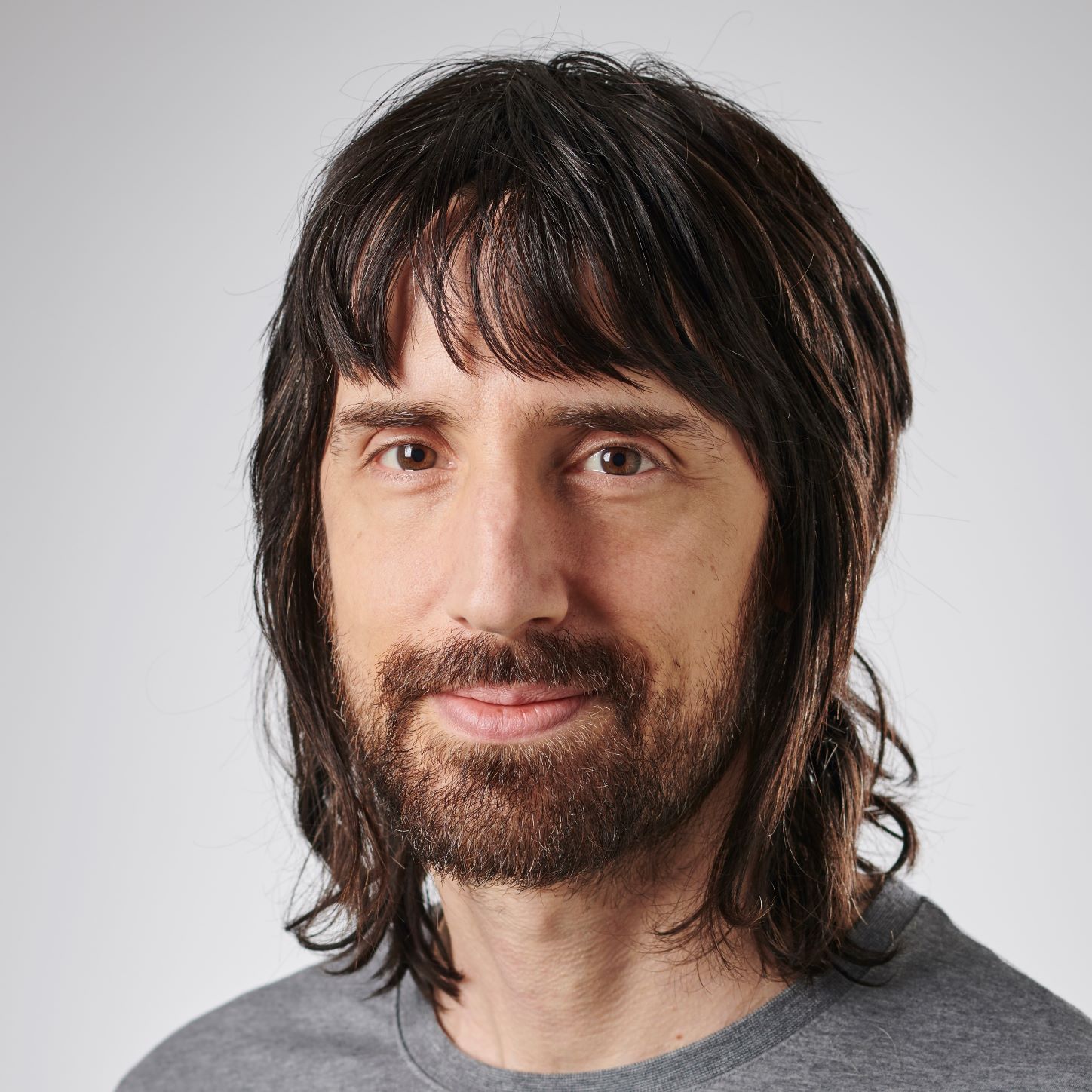Interview: "I like my guitars to be like Lewis Hamilton’s Mercedes" – Steve Howe talks new Yes album The Quest
"Less isn’t always more; sometimes more is more"
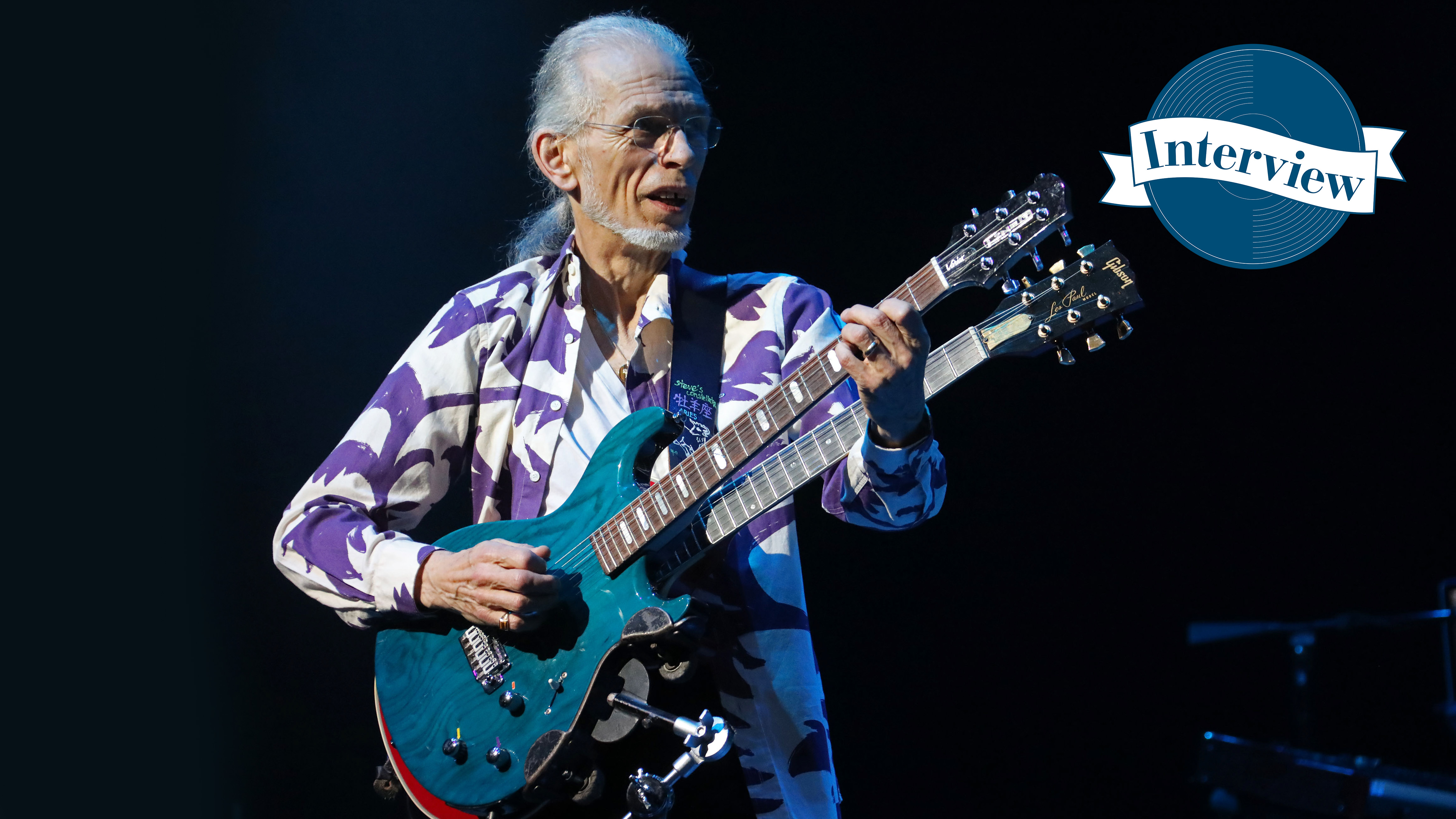
Guitar Showcase 2021: Produced by the Steve Howe and recorded on both sides of the Atlantic, Yes’s new album The Quest drops on October 1 and continues a remarkable legacy.
Formed in 1968, Yes have endured as the UK’s quintessential progressive rock group. Having recruited guitarist Steve Howe in 1970, the band recorded their breakthrough top ten long-player, The Yes Album, and as the decade progressed, prog rock came into its own with Yes at the helm. A string of classic albums followed – including 1971’s Fragile, 1972’s Close to the Edge and 1973’s Tales from Topographic Oceans – securing the band’s place in the annals of rock history and establishing Howe as a guitarist to be reckoned with.
We talked to him about the album and the starring role his Gibson ES-175 played once again…
How did you go about recording The Quest?
"We did it mostly through file sharing but luckily Geoff [Downes, keyboardist] and [singer] Jon Davison are in the UK quite a bit, so we were able to meet in the studio. We mainly used our own studios, but we also have an HQ where I work to pull everything together."
What can we expect from The Quest in terms of guitar playing?
"My original Gibson ES-175[D] came into play a lot because I was recording at my studio. I don’t take that guitar out of the country anymore, so it got a good outing on this album. I have a selection of familiar guitars I love to play – like my Les Paul Junior and Martin acoustics – which allow me to explore, improvise, and reinvent. I’ve been on a journey with production and making records ever since working with Joe Meek in 1964."
Want all the hottest music and gear news, reviews, deals, features and more, direct to your inbox? Sign up here.
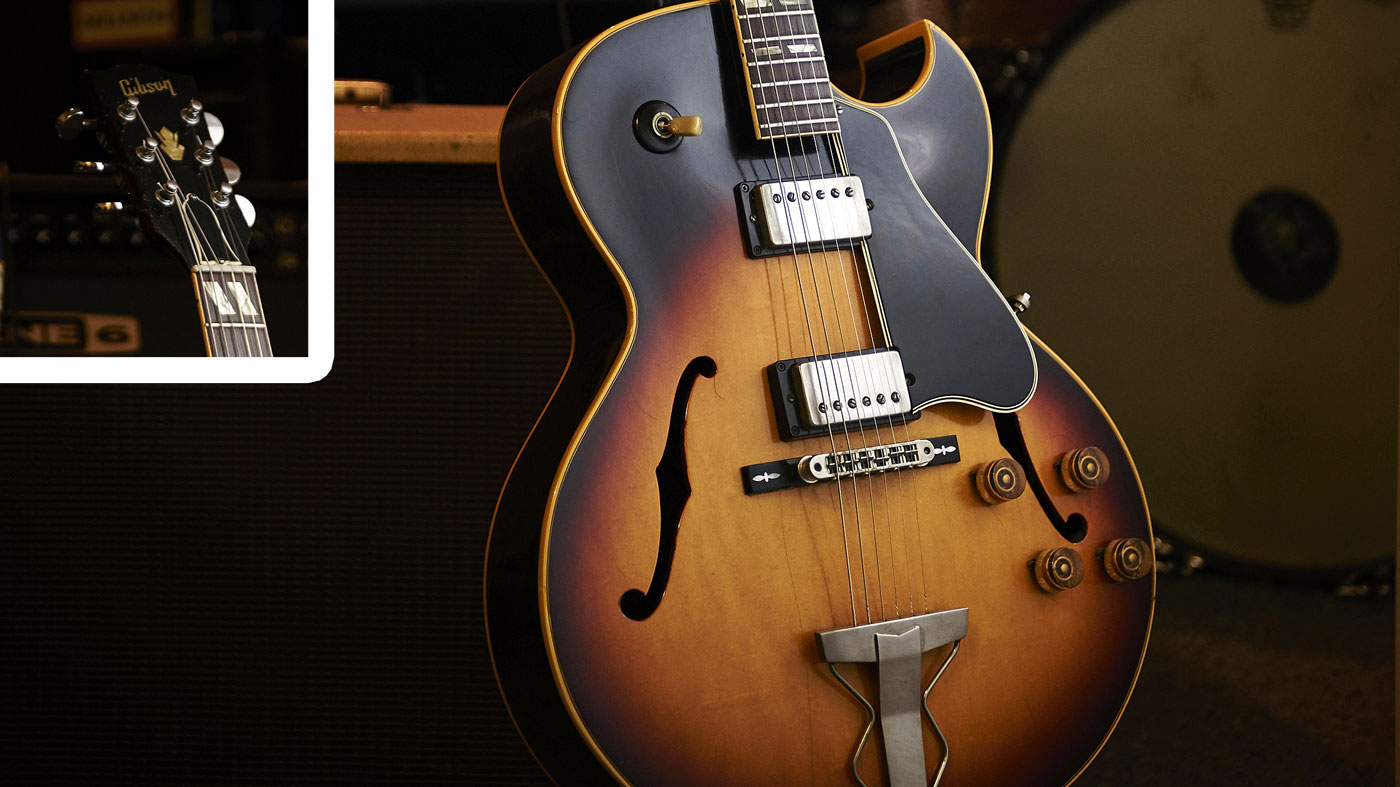
Those guitars have been with you a long time…
"Well, the more you play a guitar the better it sounds. And you’ve got to put your heart and soul into a guitar to get the best from it. Guitars seem to respond better the more they get played. That’s a big part of it. But my guitars always have to be warmed up a bit if they’ve not been played for a while."
How vigilant are you with respect to guitar maintenance?
"If I’m going to play a guitar and expect something from it then I understand it might need some attention. That might be something as simple as new strings, but it can’t have any buzzes or rattles. I mean it’s like a car – you’re not going to drive it if it’s only got three wheels. I like my guitars to be like Lewis Hamilton’s Mercedes. I’ve got to be able to use the guitar in any way I want – for any idea I have – and I want it to be able to respond. It’s a question of choice. It means I’ve got an immense amount of freedom, which is my one condition about being a musician."
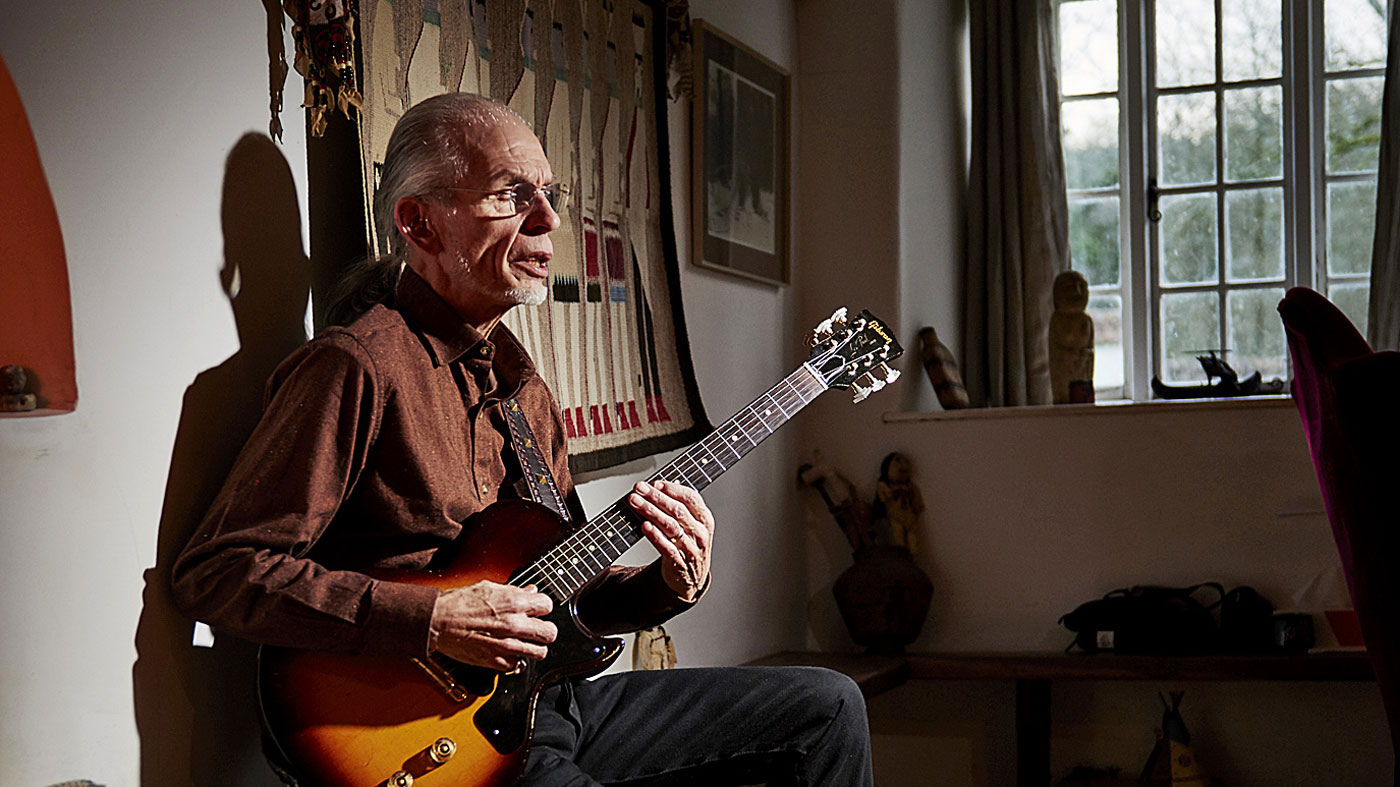
Do you tend to know from the outset which guitars will be used to record a specific part?
I enjoy being able to make choices, but I agree that it’s often better to go with the solid idea you know works as a guitarist and build from there. And on this album, the 175 was often my first choice. And if that didn’t work, it was a Tele or a Strat or a Steinberger. Or maybe moving to a different instrument altogether was what worked.
How has your guitar collection changed over the years?
I tried different things and I didn’t like all of them. It would annoy me after 40 years if I hadn’t used a guitar very much. But there isn’t a lot of electric guitars in my collection. I mean there is a great deal of acoustic guitars. And there are instruments you may only hear occasionally, like a hammered dulcimer or a koto. The Track Leave Well Alone features a koto. Those are my ‘extra’ choices."
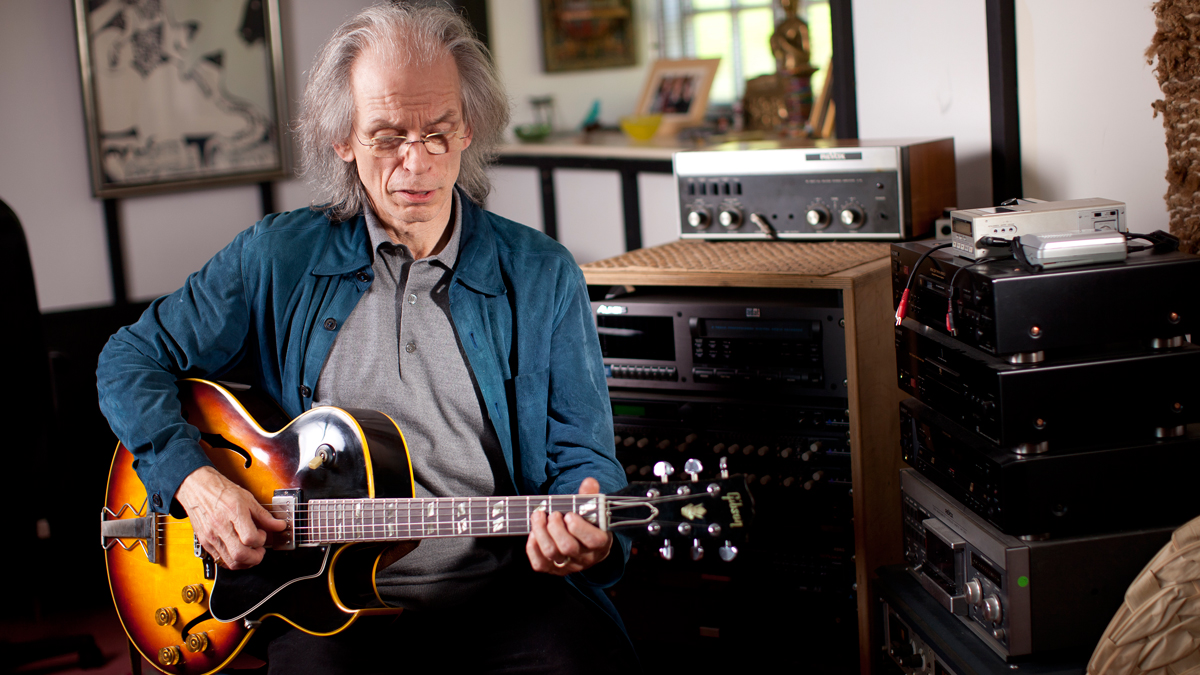
But you keep coming back to the Gibson ES-175D…
"The reason I bought other full-bodied double-pickup guitars was because I thought maybe there was a better one. The [Gibson] Super 400 was pretty good, but none of them had that particular Gibson sound I was looking for, so I’ve always gone back to [the ES-175D] thinking, ‘You can’t do better than this.’
"But it isn’t always the guitar I want to play. I mean, I wouldn’t play Parallels on anything other than a Strat, and I wouldn’t play Awaken using anything other than a Steinberger or Rickenbacker 12-string. Music is made up of so many components and there are so many hidden stages of a musical idea that we don’t think about. It’s endless. In some ways, guitars dictate a little bit back to you.
I’m always going towards something that I might not know yet, but that I’m capable of doing
What were you striving for musically with The Quest?
"The Quest didn’t happen automatically. It was about developing as a guitarist and musician. I’m always going towards something that I might not know yet, but that I’m capable of doing. Like in the song Leave Well Alone, there’s a lot of piano and Spanish guitar. I’m into guitar flavours. The things which interest me are tone and texture – the sound and the application. It’s about pulling out the right guitar at the right time and making it a feature. Like in the middle of the song Music to My Ears, I’m using my 175 but there’s also a Stratocaster in harmony. Less isn’t always more; sometimes more is more."
It’s so much fun to see an idea taking shape in the studio…
"It’s a journey. There’s the initial idea, but then it’s a question of how’s it going to sound and who’s going to play what? You know, is the keyboard going to stab on the offbeat? Or is the bass going to drive across the whole thing? All those things aren’t yet known. And I think that’s what’s exciting about new music – there’s an idea, but it’s about finding out what you can do with it.
"Sometimes it’s very subtle. For example, if you want to add rhythm guitar to a track: how much distortion you put on it, how hard you’re hitting it, what mic and amp you’re using et cetera – it all plays a part in giving you the sound you want. And that’s what I’m looking for; the right sound at the right time.
It amazes that I still wake with guitars on my mind
Do you view your guitar collection primarily as a selection of music-making tools?
"I think that’s right. They’re like a dictionary to a writer, or paint brushes to a painter. It’s my palette of colour. It amazes that I still wake with guitars on my mind. It makes me think, ‘I’m 74! Shut up about Telecasters!’ [laughs] It’s just that I am still very much a guitar person."
Who was your greatest inspiration?
"Chet Atkins was the biggest influence, and Les Paul was also pretty powerful. Chet became my guiding light. His playing was lovely and inspired me to investigate his country picking style. But his general approach was inspiring too. He used a volume and tone pedal, and there’s a volume and tone pedal used on The Quest. I’m using that on Music to My Ears and Dare to Know."
Who are some of the guitarists you’ve admired in more recent years?
"Malcolm Jones from Runrig had a great approach to guitar tone; his sound was mellow but powerful. For too long, we were all thinking twang, you know – bright, high, single-string playing. But the thicker, mellower sounds are very musical and carry a lot of weight. It can sit well with other instruments like in an orchestra, or with acoustic guitars. It doesn’t stick out like, ‘What’s this doing here?’"
How did you go about writing your guitar parts for The Quest?
"I wrote most of my parts on acoustic guitar, so it translates to electric very nicely. There are always acoustic guitars around. They’re like a piano to a keyboard player. You don’t have to question what it is you’re hearing – it’s a fundamental sound."
What acoustic guitars do you like to play?
"I generally play Martins. I’ve got Gibsons as well. Martin is my go-to sound for an acoustic flat-top. I started on a 1953 Martin 00-18, which is probably the best-sounding Martin I’ve got. That’s on Roundabout and lots of the early Yes stuff, but it’s not my workhorse anymore; I moved to using a [Martin] MC-28 sometime in the '80s. Then Martin did my own model – the MC-38 Steve Howe – which is mainly what I play, along with the MC-28. I like the cutaway and slightly slimmer body. I love Martin guitars."
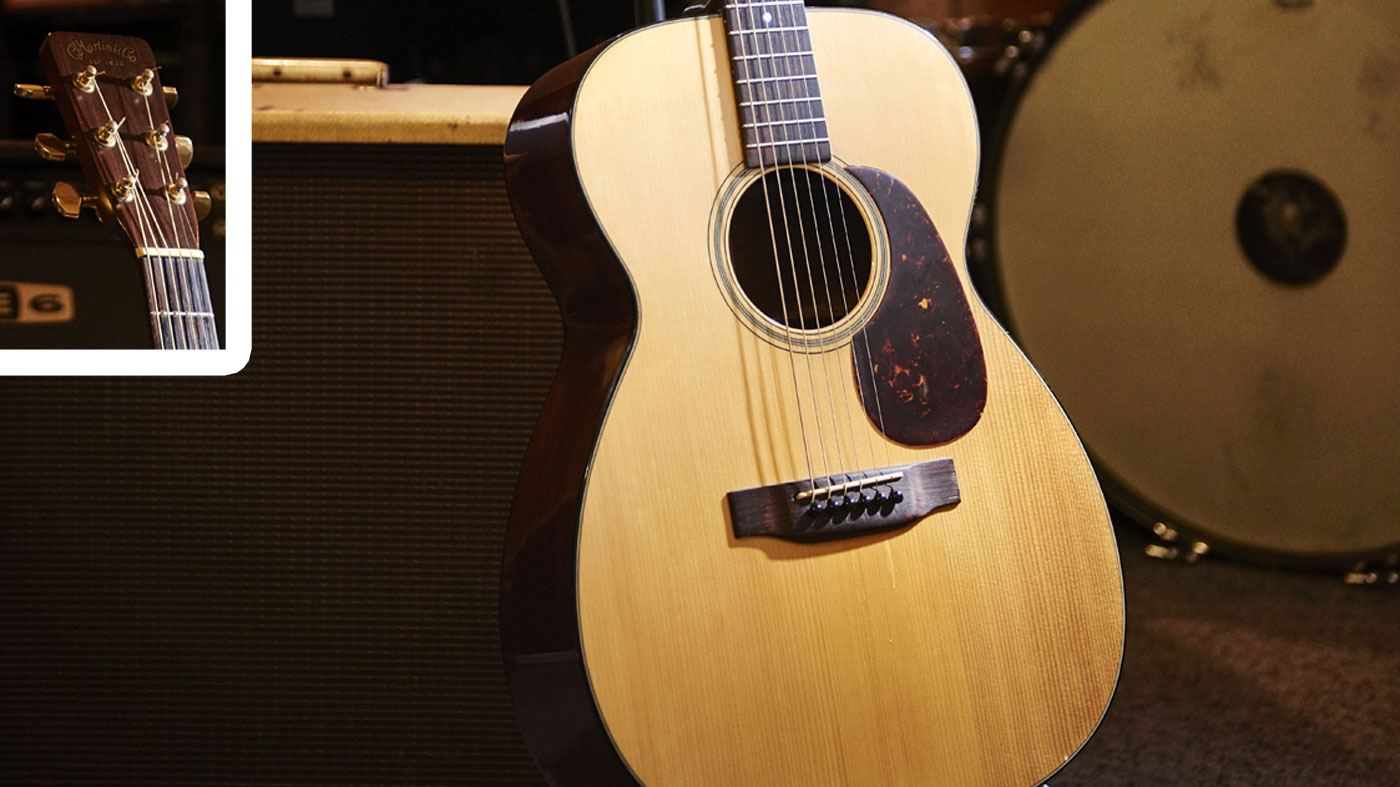
What guitar effects did you use to record The Quest?
I used the Boss GS-10 [Guitar Effects System with USB Audio Interface] which is a remarkable little system. But for the most part I was using a Line 6 Spider amp. Sometimes an amp speaker and mic help give the song atmosphere. The guitar solo on Leave Well Alone was done like that. That was my 175 into the Line 6 Spider. It’s a case of exploring different options. One usually feels right. And that just might be because it is right!
Read more: Steve Howe – “Guitars always give me a feeling of complete freedom”
Rod Brakes is a music journalist with an expertise in guitars. Having spent many years at the coalface as a guitar dealer and tech, Rod's more recent work as a writer covering artists, industry pros and gear includes contributions for leading publications and websites such as Guitarist, Total Guitar, Guitar World, Guitar Player and MusicRadar in addition to specialist music books, blogs and social media. He is also a lifelong musician.
